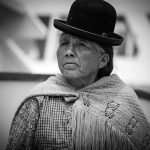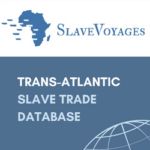Interview by Zach Doleshal
In the second installation of our new series, “Making History,” Zach Doleshal speaks with Jessica Wolcott Luther about her experience as a graduate student in history at the University of Texas at Austin. In the interview, Jessica shares stories about researching in seventeenth century archives (she’s been to eleven so far!), studying history using anthropological documents, and overcoming the frustration of knowing that she may never get the chance to find a direct source from a former enslaved person.
Jessica Wolcott Luther is a PhD candidate in the history department at the University of Texas. Her dissertation focuses on Barbados from 1640 to 1700. It analyzes the impact that the growing English empire, the rapid move toward slavery as the main form of labor, and a new-found desire to document nature through the lens of empirical science had on the way that the English thought about the human body.
The dissertation is mainly a local study using the personal documents (letters, journals, merchant ledgers, etc.) created by people in Barbados, the laws enacted to control certain bodies, and official government documents used to track populations (census, wills, baptisms). It analyzes how the English made sense of the many new bodies and their own bodies’ reactions to the space of the Caribbean as the century progressed and the enslaved population on the island became the majority by large numbers. My project also attempts to trace the ways that those changing ideas about the body affected the lives of everyone in Barbados: Englishmen and women, including servants; enslaved Africans; and native Carib peoples (most of them enslaved). It is also an Atlantic study, as it documents how the expansion to the Caribbean and the novelty of the institution of slavery led to an increasing interest in black bodies in both the Caribbean and England, not limited to but especially within scientific circles.
More broadly, this project intervenes in one of the central debates in early modern historiography — how did the modern concept of race emerge? — and its corollary — when did race become so intertwined with science? My project argues that it was in Barbados in the seventeenth century when Englishmen began to work out, in confusing, contradictory, and experimental ways, some of the kernels of belief that would eventually become central to English notions about race.
Existing at the intersection of cultural and intellectual history, this dissertation is about the process through which a society made sense of itself as it underwent radical, dramatic shifts in fundamental arenas of thought and practice when issues of human difference came quickly to the fore.
Learn more about Jessica Wolcott Luther and her work by visiting her website and following her on Twitter.
You may also like:
The inaugural episode of “Making History,” which features an interview with UT history graduate student – and author! – Christopher Heaney.
Jessica Luther’s blog piece on seventeenth century diarist Samuel Pepy’s hypothetical tweeting history, along with her review of David Eggers’ 2009 book “Zeitoun.”



